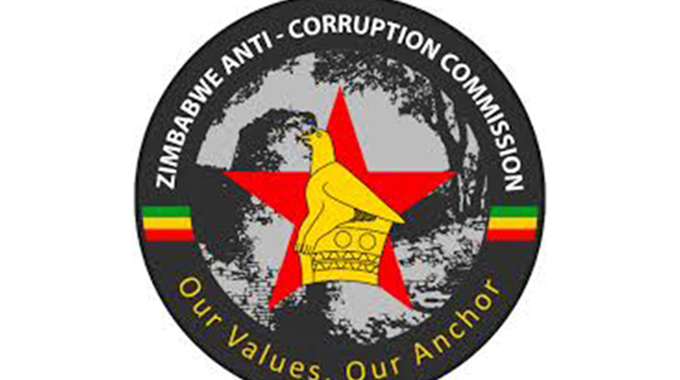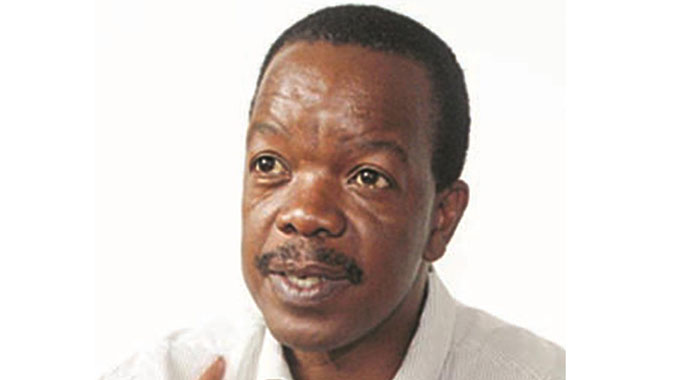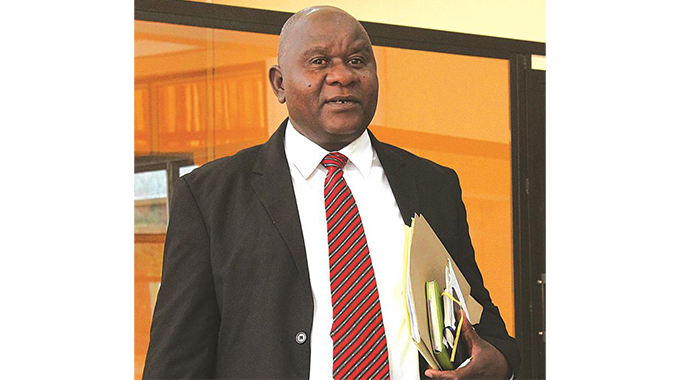Editorial Comment: Anti-graft war real

The country’s anti-corruption drive is real and more convicts are now being jailed to deter would-be offenders.
The number of people, including public figures, being arrested for graft has significantly increased over the years.
Interestingly, the drive has since gone a gear up with more bigwigs being found guilty and locked up for criminal abuse of office and other corruption-related charges.
All along the police were the only investigating arm with arresting powers, but recently, the Zimbabwe Anti-Corruption Commission (ZACC) was bestowed with the same powers, leveraging the anti-graft war.
Another important unit, the Special Anti-Corruption Unit (SACU), was also set up to assist in effectively investigating and prosecuting corruption cases.
SACU collaborates with the police, ZACC and at times, with the National Prosecuting Authority (NPA) to ensure no stone is left unturned in the quest to curb corruption.
The Zimbabwe Republic Police (ZRP) also set up its own specialised unit, the Police Anti-Corruption Unit (PACU) while the Judiciary introduced special anti-corruption courts to exclusively preside over graft cases.
All these efforts are being undertaken in the spirit of intensifying the war and ensuring that all the corrupt elements are brought to book and dealt with in terms of the law.
The fight against corruption is a priority issue for the Second Republic and all relevant institutions are playing their own roles to create a corrupt-free environment.
The fight has started bearing fruit, with the latest conviction being that of Zimbabwe Mineral Development Corporation (ZMDC) acting general manager Luke Akino who was jailed for two years last weekend for corruptly awarding a $168 000 consultancy services contract to his acquaintance.
Prosecutor Mr Michael Reza called for a custodial sentence arguing that a non-custodial one would trivialise the matter. The prosecutor argued that corruption was a serious offence, which was now highly-prevalent.
“The court must send a clear message that corruption does not pay. The State prays for a seven-year jail term of which two years should be suspended on condition of good behaviour and the accused serve five years effective in prison,” said Mr Reza.
However, the court slapped Akino with an effective two-year jail term.
Such a conviction and sentence speaks to the country’s seriousness in fighting corruption.
Players in the criminal justice system who participated in the investigation, prosecution and adjudication, played ball, setting an example of how the corrupt elements must be treated.
Former principal director of State Residences Douglas Tapfuma was mid this year jailed for an effective four years and had six vehicles forfeited to the State after he was convicted on three charges of criminal abuse of office. The court declared the forfeiture of six cars — a Toyota Hiace, Toyota Altezza, BMW 318i, Nissan Tiida and two Honda Fit vehicles — out of the eight cars he imported.
In passing sentence, the magistrate made it clear that corrupt practices required deterrent punishment.
During his tenure, Tapfuma imported eight vehicles using bills of entry exclusively reserved for bringing into the country the President’s personal goods and for the Government. By doing this, he avoided paying duty.
Former PetroZim Line (Pvt) Limited general manager Cathrine Katsande was in August this year jailed for an effective 60 months for fraudulently awarding to a local company, tenders for the supply of equipment worth US$2 million during her tenure.
She was convicted of six counts of fraud.
Harare magistrate, Mr Lazini Ncube, initially sentenced her to 90 months’ imprisonment before suspending 30 months.
Mr Ncube also fined the company that was awarded the tenders, Keltrade (Pvt) Limited $53 000 for the same offences.
In September this year, former Midlands Provincial Affairs Minister Jason Machaya was jailed for an effective two-and-a-half years after being convicted on abuse of office charges involving the illegal allocation of 17 799 commercial and residential stands on State land in Gokwe.
Machaya personally received 1 791 stands back from the developers and entities he had allocated the State land to and had already sold 1 185 to individuals, pocketing US$900 000.
He was sentenced together with former Midlands Provincial physical planner Chisayinyerwa Chibururu.
Former Energy and Power Development Minister Samuel Undenge who was in 2018 convicted of abuse of office was in June this year committed to prison for two-and-a-half years.
Undenge was found guilty of prejudicing the Zimbabwe Power Company (ZPC) of $12 650 when he hand-picked a public relations company owned by politician Psychology Maziwisa and former ZBC news anchor Oscar Pambuka to do work for ZPC without going to tender.
He appealed the decision in 2018 but this year, the High Court rejected his appeal. The court found out that his sentence was not excessive and did not induce any sense of shock.
In July last year, President Mnangagwa appointed a new commission, headed by renowned judicial officer Justice Loice Matanda-Moyo, to effectively and efficiently investigate all corruption cases.
Being a new broom, ZACC truly swept clean.
Ten days after the swearing-in ceremony, the newly-constituted commission hit the ground running, arresting ex-Minister for Environment, Tourism and Hospitality Industry Prisca Mupfumira on corruption allegations involving US$95 million.
Mupfumira became ZACC’s first big catch on July 25. She is now out on bail.
Other prominent figures arrested by the newly constituted ZACC included former Vice President Phelekezela Mphoko who was accused of criminal abuse of office.
Another arrest that confirmed ZACC’s seriousness in the fight against corruption was that of Marry Mubaiwa, the estranged wife of Vice President Constantino Chiwenga, for externalising US$1 033 000.
She was also charged with money laundering involving US$990 000 and fraud. Using the tainted money, Mubaiwa is said to have bought two houses and furniture in South Africa, and three top-of-the-range vehicles.
This year, former Health and Child Welfare Minister Obadiah Moyo was arrested for corruption. Over 10 Harare councillors and directors were also arrested including ex-Mayor Gomba over illegal land sales.
Mayor Jacob Mafume, who replaced Gomba, was also arrested as the fight against corruption intensified. Various studies have shown that corruption is a major ingredient in retarding economic growth and development. It has been shown that corruption is negatively linked to the level of investment a country can have. The more corruption there is, the less investment and the less economic growth.
Conscious of the devastating effects of corruption, the New Dispensation has identified the scourge as its number one enemy in the quest for an upper middle income economy by 2030.










Comments